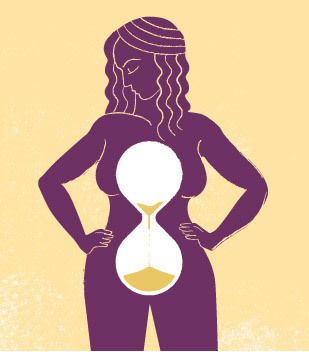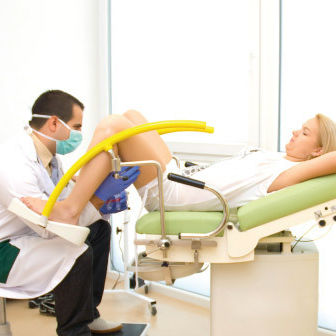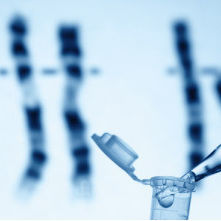Menopause: Flash Forward

Menopause has been misunderstood, maligned, and made into musicals. But the cessation of menstruation and the bodily changes that accompany it shouldn’t be something to grieve. Rather, they’re something to understand—and maybe even welcome.
The average age of menopause is 51 years old, says Karen Adams, ob-gyn and the director of the Over-40 Clinic at the OHSU Center for Women’s Health. However, other medical issues, including chemotherapy, premature ovarian failure, and surgeries can cause women to experience menopause earlier.
The textbook definition of menopause is not getting your period for a year. But women can anticipate about four years of perimenopause as the body prepares itself to stop ovulating; the transition time can last anywhere from one to 10 years. While it’s rare to still have your period at age 55, genes do play a part. “You can expect something similar to the experience of other women in your family,” Dr. Adams says.
During perimenopause, Dr. Adams says, many women find that their cycle is lengthening; for example, if you used to get your period every 28 days, by your late 40s you might find the time between periods is more like 36 to 40 days. “Some women get periods that are closer together and with erratic or heavy bleeding, but more commonly they stretch out,” Dr. Adams says. Another very common perimenopause symptom is hot flashes or night sweats, which are triggered by shifting estrogen levels. Dr. Adams advises women to dress in layers, and if hot flashes are taking over your life, hormonal supplements can help.
This drop in estrogen is often accompanied by moodiness or irritability. “When a woman has a period every month, it shows that the hormones estrogen and progesterone are cycling very predictably,” Dr. Adams explains. “But during perimenopause, she’s not ovulating regularly and can feel not quite herself.” She also cautions that while menopause doesn’t cause depression, it may trigger depression in someone who has previously suffered from it. Women should talk to their health care providers about their concerns.
Overall, menopause gets a bad rap, Dr. Adams believes; the disappearing of periods can be a wonderful and freeing thing. “This is a time in a woman’s life when she knows who she is and is creating the kind of life she wants to live,” she says. “You know what you want your life to look like and can focus on that.”















